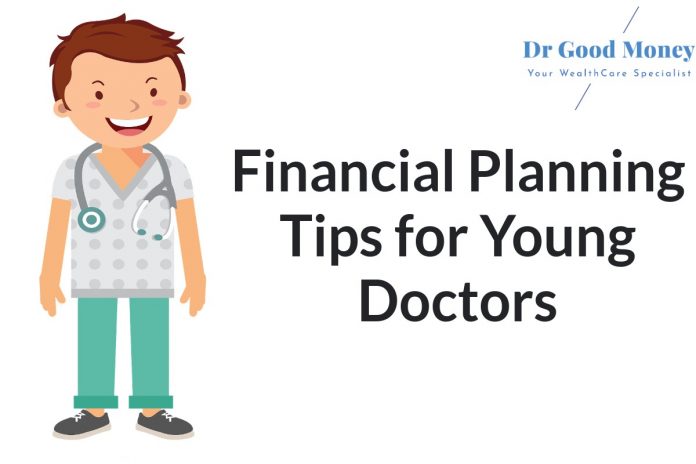Priyanka, a final year MBBS student, recently came through a Presentation by SEBI on “Lessons on financial planning for young investors”. This presentation was shared by her college professors who want their students to learn concepts like financial planning, goal setting, savings, and investment before earning the first salary.
Priyanka wanted me to summarize it and guide her, what is to be done as she feels the PPT be a bit heavy. She said that though she understands that financial goals are important to have but to start with if I can give her some financial planning tips on how to make a start and later on she can work on her goals and get proper financial planning done.
Priyanka was about to complete her MBBS and is going to start her residency and study further for Post Graduation. She will be earning some salary during these years.
Managing finances should be backed by proper learning and this is where our education system lacks, which doesn’t have any provision to teach the basics of money management at any stage of school or college days. When youngsters ask for immediate capsule advice, then they expose themselves to mis buying and many missellers take advantage of this.
It’s important for them to learn that wealth can’t be generated overnight. I also believe this is a very sensitive age and whatever behavior gets developed during this period will stay for long. and in case of doctors due to their busy schedule, they won’t even find time to check and go in detail what exactly they have bought.
So youngsters should try and learn the financial aspects impacting their life and should start working on it as soon as they get their first paycheck.
I am pointing out some financial planning tips for beginners which I think will help these young investors to give their financial life a kick start.
1. Understand Money’s worth: First and foremost thing that young doctors have to learn is understanding Money’s worth. You should understand that you start earning after years of hard work in academics, many years of training, and spending huge sums of money.
So, for example, if you earn Rs 50000/- per month i.e in 25 days or in 200 hours, this means your per hour earning is Rs 250. Whenever you want to spend something somewhere, you just have to see that if that particular thing is worth the time you spent on earning the same. Learn How to be good with money.
2. Save 20% of your income: Start with saving at least 20% of your monthly income. This is very crucial to develop discipline. Use any instrument – Recurring deposit, Mutual funds SIP, PPF, etc. but use it after understanding the pros and cons.
Keep it simple but stick to it and never get lured to withdraw these savings. It would be much easy for those who are living with their parents who are taking care of household expenses but may not be that difficult even for those who have family expenses responsibility too.
3. Create an Emergency fund: Out of the 20% income savings you make every month, the first thing you have to do is to accumulate your 3 to 6 months mandatory expenses and keep it safe somewhere in liquidable form to manage emergencies and extreme situations. We have seen extremes in covid times. The value of the emergency funds is most felt in recent times, due to the pandemic situation created all over the world.

4. Buy adequate insurances: Your savings should be backed up by adequate insurance coverage. If you have financial dependents then go with Life insurance also, otherwise adequate health insurance and accident insurance are very much required even if your employer has covered you under their own sponsored insurance coverage.
Read our post on Personal Accident Insurance with infographics
Doctors should also consider an adequate Professional Indemnity cover, to safeguard your hard-earned money from liabilities arising due to professional negligence or mistakes. Read our detailed post on Professional Indemnity Insurance here.
What is adequate, needs to be calculated, but to start with you may go ahead with 20 times of your annual income for life insurance. (Read: Doctors… do not ignore comprehensive health cover)
5. Understand that tax saving is not about buying Insurance Policies: Investing for tax saving is the first place where young doctors start making mistakes. Almost every doctor I have met feels that tax can be saved only by buying some Insurance policy or taking a home loan.
Buying insurance policy only to cover the risk and automatically some tax-saving will also happen. But don’t buy policies just to save tax. There are many different instruments where you can invest to save tax which you will learn over a period of time but stay away from Insurance policies. (Read: tax planning tips for young doctors)
6. Track your expenses: I can understand that though it would not be fair on my part to put the pressure of Budgeting on the new earners, especially doctors as they are derived from joys and pleasures due to studies and busy schedules. That’s why I just wanted you to start with saving just 20% of your income.
But still going forward after a few months or years you have to learn this concept and work on it. It’s hard to know how much you should be saving if you don’t know what you are spending. So I advise my friends to track your expenses. Whatever you spend, wherever you spend just note it down. Use a diary, mobile app, or anything you are comfortable with just try and understand your pattern of expenses.
Spend by keeping in mind point no.1 mentioned above. I am sure after some time you yourself start understanding the importance of spending wisely.
7. Avoid Loans: Having regular inflow in your account will bring along so many loan offers from banks and when you are not sure about your goals and requirements, you will surely get tempted to go overboard and take loans for many not required things.
Till the time you don’t get confidence in managing your finances, you should not indulge in any kind of loan…be it for a bigger car or apartment.
Taking loans at this stage will create long term commitments which permanently commit you to higher spending in the future and can make it harder to deal with uncertainties of life later. and when your financial life has not yet designed you should not fall into this trap.
You should know the difference between Good Loans and bad Loans.
It is quite understandable that buying those big things from your own income in a short span will surely give you “a high” and instant gratification but sooner you learn the fine art of delaying gratification, the faster you’ll find it easy to keep your finances in order.
As I said earlier that this stage of life will design your financial mindset, so there should not be any place for loans in it. Save first and then spend even on your mobile phone or iPad 😉
As they say that “the first thing assured by beginning is the end” and “Well begun is half done”, so I believe once you start following the above mentioned financial planning tips religiously you will also start feeling the same.
I hope the above mentioned financial planning tips will be useful to the young doctors, who had just started earning. Do keep in mind this is just a start and you should not ignore the power of structured financial planning, which would help you look at your financial life holistically.
(Also Read: Financial Plan or Planning what is more important?)
